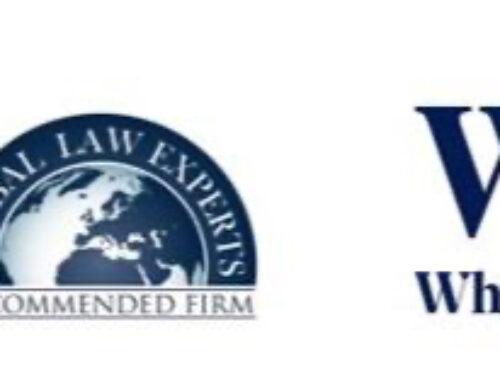General guiding principles for restructuring
- In the face of financial difficulties or liquidity risk, react promptly without delay in order to ascertain if one could qualify for one of the Luxembourg bankruptcy protection mechanisms:
- A Scheme Of Composition (concordat préventif de faillite). A protective measure that enables companies in financial difficulty to come to an arrangement with their creditors and to avoid being declared insolvent.
The scheme of composition must be accepted/approved by the court and the creditors.
- Suspension Of Payments. Enables a company to deal with temporary financial difficulties by authorising it to suspend its payments to creditors for a given period of time.
- Controlled Management. By requesting to be placed under controlled management (mise sous gestion contrôlée), a company that is temporarily in difficulty can avoid insolvency or an immediate cessation of business and also avoid the drawbacks of a suspension of payments or a scheme of composition with creditors.
The company places the management of its assets under the control of one or more administrators (commissaires) in order to restructure its business or sell its assets under the best possible conditions.
Note: these are complex procedures which are not often used by the Luxembourg courts and, therefore, require careful planning.
- A Scheme Of Composition (concordat préventif de faillite). A protective measure that enables companies in financial difficulty to come to an arrangement with their creditors and to avoid being declared insolvent.
- Insolvency. In case the insolvency is inevitable, the possible applicable procedures are the following:
- bankruptcy declaration by the Board of Directors;
- summons for bankruptcy proceedings initiated by creditors; and
- automatic bankruptcy declaration by the Luxembourg commercial court.
Imperative and practical considerations
- The Board of Directors should ensure that it has up-to-date financial statements.
- Companies should review their debt covenants and any security interests granted in Luxembourg assets.
- Directors’ liability should be a major concern and their conduct should be analysed to ascertain their exposure to personal claims and liabilities and, therefore, we recommend that company directors act with great vigilance.
- Throughout any financial difficulties, the board members must carefully review payments or distributions that are made or planned given that any distributions may result in personal actions against them.
- Company directors may be personally liable for gross negligent conduct.
- Directors could be personally liable for unpaid corporate income tax, VAT and unpaid employee social contributions.
- On March 25, 2020, a Grand Ducal Regulation was issued in which all procedural time limits were suspended. The implications of such suspension may mean that the timelines set in this article may not apply and the Luxembourg courts are currently not bound by any time stipulations.
Considering the potential financial contagion of COVID-19, we are outlining the options available to financially distressed parties under Luxembourg law. It should be noted that this note is made subject to a draft bill of reform on the law of insolvency no.6539.
Definition of a Luxembourg insolvency
A Luxembourg commercial company is insolvent (faillite) when it is unable to pay its debts, and when its commercial credit is affected (article 437 of the Commercial Code). It is not necessary that all payments have been stopped; it is sufficient that the company has ceased to pay its principal debts.
Note that, the law does not contain any liquidity requirements or liquidity test.
Scheme of Compositions (Concordat préventif de faillite)
A scheme governed by the law of the 14th April 1886, as modified by the law of the 1st February 1911.
This protective measure enables a company facing economic difficulties to enter into an arrangement or otherwise an agreement with its creditors in order to avoid insolvency proceedings.
In order to qualify for this procedure, the debtor must: (i) fall within the definition of insolvency (see above); and (ii) act in good faith (to be determined by the presiding judge).
Procedural and practical considerations. The request for this scheme (concordat préventif) must be sent to the commercial section of the District Court of the place of the company’s registered office, joining a statement of the circumstances justifying its request, a detailed and estimated balance of its assets and liabilities as well as a list of the creditors with the amount(s) due and the proposal payment plan the debts.
The District Court will appoint a judge which its function is to verify the debtor’s situation and to make a report to the court. From the date of such appointment, there is a temporary stay of all enforcement measures against the debtor.
Based on this report, the District Court will determine whether to pursue the procedure of “concordat préventif” or to declare the company insolvent. If this procedure is approved by the court, the court will order a creditors’ meeting at which a proposal of debt repayment will be made. At the meeting, the creditors will declare if they accept the proposed repayment plan. For such acceptance to be approved, a majority of ¾ of the creditors representing the uncontested debts is required.
Following the creditors’ meeting, the District Court may accept or reject the repayment plan. A rejection of a plan will be based on: (i) a violation of the law; or (ii) a violation of the interests of the creditors or of the public interest.
In case of the court acceptance of the scheme, the arrangement apply to all creditors.
Note that, the “concordat préventif” has no effect on debts relating to taxes and secured creditors.
Secured creditors. Also note that, if a secured creditor wants to take part and vote in the creditors’ meeting, it will be required that it waives its rights to secured interest(s) (Article 10 of the Law). Such waiver will only apply if the scheme is implemented.
Once the scheme is approved, the debtor will be prevented from taking any other acts or measures without the prior authorization of the judge (for example, sell asset or mortgage properties or sign agreements of any nature).
The presiding judge will verify the situation every three months.
The scheme will be terminated by the judge during verification period in the following circumstances:
- improvement in the company’s financial position (a.k.a. ”retour à meilleure fortune”);
- annulment of the scheme in case of “banqueroute” or fraud on request from a creditor; or
- breach of the scheme.
It should be noted that, if a judgement of insolvency is rendered in the six months after the scheme was approved, the Suspect Period (defined below) may commence on the day of the introduction of the request of the scheme.
Suspension of payments « Sursis de paiement »
Article 593 and seq of the Commercial Code establishes a mechanism for obtaining a suspension of payments.
This should not be confused with the regime of suspension of payment specific to financial institutions (Law of 1993 of the financial sector).
In fact, a suspension of payments may be granted in cases where a company, due to extraordinary and unforeseeable events, has suffered temporary liquidity problems preventing it from honouring payments due, but where the assets of the company are sufficient to pay outstanding debts of principal and interest.
Note that, suspension of payments may be granted by the judge if the party’s situation, although currently in deficit, contains sufficient elements for restoring the balance between assets and liabilities. It should also be noted that, the debtor has a right to ask for a payment suspension as a provisional measure as of the date of introduction of the request as well as during the proceedings.
Procedural and practical considerations. The request for suspension shall be sent simultaneously to the commercial section of the District Court of the place of the company’s registered office and the Court of Appeal, joining a statement of the circumstances justifying its request, a detailed and estimated balance of its assets and liabilities and a list of each creditor with the amount due.
Note that, the request addressed to the Court of Appeal has to be signed by a lawyer member of the Luxembourg Bar (a.k.a List I).
The District Court will appoint an expert to verify the party’s financial situation, as well as a judge-commissioner to oversee the expert’s report.
The appointed judge has to convene the creditors and the debtor to a meeting during which it will set-out the situation and ask for agreement from the creditor.
In effect, the suspension is only granted with the consent of the majority of the creditors representing ¾ of the total amount due.
On the basis of this meeting, the District Court will give its opinion as well as the documents produced by the debtor and the creditors to the Attorney General (“Parquet Général“) whom will submit the opinion of the District Court and the relevant exhibits with his own conclusions to the president of the Court of Appeal.
The Court of Appeal is required to give its ruling within eight days of receipt of the relevant documents.
If granted, the Court of Appeal will fix the period of suspension and will appoint commissioners or supervisors for the company in question.
During the suspension period. The debtor can suspend its payments to creditors.
- Unless the debtor is in default of paying the interest on its debts, secured creditors are prevented from realizing their secured interest by seizing or selling the real estate and property necessary for the exercise of the debtor’s activity.
Payment of the existing debts has to be made in proportion to the respective debt of each creditor.
- Once the scheme is approved, the debtor will be prevented from taking any acts or measures without the prior authorization of the court appointed commissioner.
Note that, this grace period is only applicable for debts incurred prior to the request and has no effect on certain debts such as taxes, public charges or preferential debts (article 605 of the Commercial Code).
The suspension period ends:
- on the date fixed by the Court of Appeal; and
- in case of revocation.
In the event that, the creditors ask for revocation of suspension when the debtor:
- acted in bad faith or with intent to harm the creditors;
- payed unsecured debts during the suspension period; and/or
- has no longer the sufficient resources to fully honour its debts.
Note that, the District Court has the right to declare the debtor insolvent if the conditions of insolvency are met (see above).
Note that, if a judgement of insolvency is rendered in the six months after the end of the suspension period, the date of the cessation of payments will be set back to the date of the introduction of the request of suspension of payment.
Controlled management « Gestion contrôlée »
The procedure of controlled management is regulated by a Grand-Ducal Decree of 24 May 1935 (“Decree of 1935”).
The aim of such request is the reorganization of the company’s business or the sale of the company’s assets at the best conditions.
In practice, such procedure is not often requested by companies, and rarely granted by the courts, since the requesting company is usually already insolvent.
A company in financial difficulties may request that a controlled management procedure be initiated if: (1) the credit of the company is undermined (meaning that the company cannot obtain new credit); or (2) the complete fulfillment of the company’s obligations is jeopardized.
Note that, the case law requires good faith on the part of the applicant before the request and during the period of controlled management.
Furthermore, to be granted, real possibility of reorganization has to exist to improve the finances of the applicant and reduce its debts.
The request for controlled management must be sent to the commercial section of the District Court of the place of the company’s registered office.
If the court accepts the “controlled management”, it will appoint a commissioner to supervise the company or applicant.
The commissioner will control and supervise the management of the company until the end of the controlled management procedure; the company will not be able to dispose of, create or grant a security interest over its assets without the consent of such commissioner.
A plan of reorganization of the company’s business or sale of the company’s assets will be proposed by the commissioner (article 6 of the Decree of 1935). Such plan must be accepted by a majority of the company’s creditors representing more than half of the liabilities of the company. The judgment approving the management plan is then enforceable against all creditors of the company.
If reorganization is unsuccessful, the court will declare the company insolvent and will determine the date of cessation of payments.
Insolvency « Faillite »
A company is insolvent when it is unable to pay its debts, and when its commercial credit is affected (article 437 of the Commercial Code).
Note that, a temporary financial issue is not enough to bring a company into insolvency.
Three insolvency modalities:
- Insolvency declaration
The representatives of the company (usually a company’s Board of Directors) are under an obligation to declare insolvency within one month of the date of the ceasing of its payments.
Such declaration must be made at the commercial section of the District Court (“Tribunal de Commerce“) of the place of the company’s registered office.
If the representatives of the company fail to do so, a criminal procedure of bankruptcy (“banqueroute“) can be brought against them.
Note that, company directors are under an obligation to declare the insolvency and their board resolution will be sufficient from a corporate law point of view to file an insolvency declaration.
- Insolvency procedure initiated by a creditor
A creditor whose claim has become due can initiate insolvency proceedings against the company.The creditor must bring proof that the company is insolvent.
In general, the court will, upon such request of a creditor, initiate an inquiry into the financial situation of the company, and it is only once the court has received a confirmation of the company’s insolvency by such inquiry that the insolvency will be declared.
In practice, the Company will have to establish that it is able to pay its debts as they come due.
- Judgement of the Court (without a creditor’s request)
In case of insolvency, the District Court will appoint a receiver “Curateur” which his/her function is to manage the company during the insolvency proceedings and to conduct the liquidation operations under the supervision of a judge of the District Court.
The general duty of the receiver is to protect the interests of the company and of its creditors.
From the day of the insolvency judgment, the company is deprived of the administration of its assets, which is now entrusted to the receiver. Such removal of management takes place not only with respect to the company’s assets existing prior to the insolvency judgment, but also with respect to all assets it may acquire after such judgment.
From the date of the insolvency judgment, the creditors of the company cannot individually act against the company to obtain payment. As of such date, all debts of the company become due and unsecured claims cease to bear interest (articles 450 and 451 of the Commercial Code).
Secured creditors will be treated preferentially. However, all unsecured creditors of the company must be treated equally during the whole insolvency proceedings. Consequently, all unsecured creditors will be paid proportionally to their claims out of the assets contained in the insolvency estate.
Suspect period
The judgment opening the insolvency proceedings determines the actual date when the company ceased to pay its debts (“cessation des paiements“). Certain payments and transactions made by the company during the period from the “cessation des paiements” to the date of such judgment (suspect period, “période suspecte“) will be considered as null and void in the insolvency proceedings. These include, in particular, the payment of debts not due at the time of the payment as well as the granting of guarantees for pre-existing debts (article 445 of the Commercial Code). Note, however, that setting aside such transactions cannot precede the date of the insolvency judgement by more than 6 months.
The court may also declare null and void any payment made during the suspect period if the creditor knew that the company was insolvent at the time of such payment (article 446 of the Commercial Code).
As a general rule, all actions taken by the company at any time in fraud of the creditors’ rights are void (article 448 of the Commercial Code). However, with respect to financial collateral, the suspect period is not applicable (law on 2005 on financial guarantees).
Cross border and extraterritoriality of insolvency
EU Proceedings. Insolvency cases involving companies with activities, assets or affairs in several EU countries may be governed by EU Regulation 2015/848 dated 20th May 2015 regarding insolvency procedure.
The Jurisdiction of the court is determined as the place where the debtor has its principle interests.
In the case of a company or legal person, the place of the registered office shall be presumed to be the center of its main interests in the absence of proof to the contrary. That presumption shall only apply if the registered office has not been moved to another EU Member State within the three-month period prior to the request for the opening of insolvency proceedings (Article 3).
Any judgment opening insolvency proceedings handed down by a court of a Member State which has jurisdiction shall be recognized in all other Member States from the moment that it becomes effective in the State of the opening of proceedings, with no further formalities required in Luxembourg (Article 19 and seq.).
Non EU Proceedings. In the event of cross-border bankruptcy commencing outside the EU, the rules of private international law of the State where proceedings are taking place will apply without any specific statutory provision. In practical terms, a Luxembourg or foreign judgment of bankruptcy could be enforced against assets of the bankrupt company. Consequently, Luxembourg courts may recognize foreign bankruptcy judgement without the need for recognition proceedings or the receipt of so-called “full faith and credit” in Luxembourg.
Directors’ liabilities
First of all, it should be noted that the parties at risk are board of directors appointed by law as well as those persons acting de facto as directors of the board.
Bankruptcy (Banqueroute)
Pursuant to articles 573 to 585 of the Commercial Code, the representatives of the company may be convicted of negligent or fraudulent bankruptcy in various circumstances listed in such statutory provisions.
Note that “Banqueroute” is a criminal offence. Such criminal offence may be sanctioned by imprisonment and the proceeds obtained as a result of such offence shall be reintegrated into the insolvent company’s estate.
Extension of insolvency
According to article 495 of the Commercial Code, the insolvency of a company may be extended to any director who has carried out, under the name of the insolvent company, a commercial activity solely in his/her personal interest. A personal insolvency order may also be issued against the director if he/she has comingled the company’s assets with his/her own, or if he/she has pursued an unprofitable business of the bankrupt company in his/her sole personal interest.
Debt restitution
Furthermore, according to article 495-1 of the Commercial Code, if the assets of an insolvent company do not allow full payment of all the creditors, the directors of such company may be held personally liable, in part or in full, jointly or severally, for the outstanding debts of the company, if the insolvency has been caused by the gross negligence (“faute grave”) of the directors. Note that for such restitution to take place, there must be a cause and effect relationship.
Professional ban
In case of serious fault of the directors of the company, article 444-1 of the Commercial Code provides that the court can forbid the directors from carrying out, directly or indirectly, any commercial activities as well as any activity as director, manager, auditor or any function that permits to engage a company.
Contractual liabilities
Under Article 441-9 (SA) and Article 710-16 (SARL) of the law of 10 August 1915 on commercial companies as amended, the company can sue the directors for any fault they have committed in the performance of their duties.
The directors are personally liable to the company as well as third parties for damages incurred as a consequence of their infringement of either the law on commercial companies or the articles of incorporation of the company.
General principles of civil law
Irrespective of the commercial and corporate law specific dispositions, the general principles of delictual (tortious) civil law can also apply and legal action can be brought on this basis as well.






